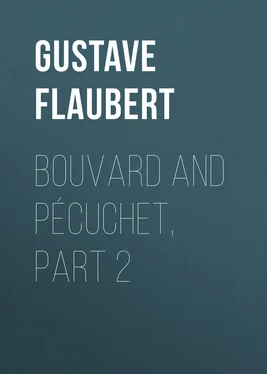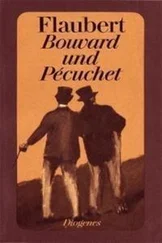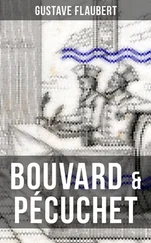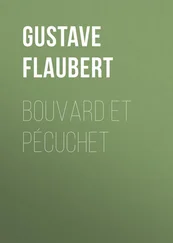Gustave Flaubert - Bouvard and Pécuchet, part 2
Здесь есть возможность читать онлайн «Gustave Flaubert - Bouvard and Pécuchet, part 2» — ознакомительный отрывок электронной книги совершенно бесплатно, а после прочтения отрывка купить полную версию. В некоторых случаях можно слушать аудио, скачать через торрент в формате fb2 и присутствует краткое содержание. Жанр: foreign_antique, foreign_prose, на английском языке. Описание произведения, (предисловие) а так же отзывы посетителей доступны на портале библиотеки ЛибКат.
- Название:Bouvard and Pécuchet, part 2
- Автор:
- Жанр:
- Год:неизвестен
- ISBN:нет данных
- Рейтинг книги:5 / 5. Голосов: 1
-
Избранное:Добавить в избранное
- Отзывы:
-
Ваша оценка:
- 100
- 1
- 2
- 3
- 4
- 5
Bouvard and Pécuchet, part 2: краткое содержание, описание и аннотация
Предлагаем к чтению аннотацию, описание, краткое содержание или предисловие (зависит от того, что написал сам автор книги «Bouvard and Pécuchet, part 2»). Если вы не нашли необходимую информацию о книге — напишите в комментариях, мы постараемся отыскать её.
Bouvard and Pécuchet, part 2 — читать онлайн ознакомительный отрывок
Ниже представлен текст книги, разбитый по страницам. Система сохранения места последней прочитанной страницы, позволяет с удобством читать онлайн бесплатно книгу «Bouvard and Pécuchet, part 2», без необходимости каждый раз заново искать на чём Вы остановились. Поставьте закладку, и сможете в любой момент перейти на страницу, на которой закончили чтение.
Интервал:
Закладка:
“Blasphemy!”
“So then there is only one person, one God, one substance affected in three ways!”
“Let us adore without understanding,” said the curé.
“Be it so,” said Bouvard. He was afraid of being taken for an atheist, and getting into bad odour at the château.
They now visited there three times a week, about five o’clock in winter, and the cup of tea warmed them. The count’s manners recalled the ease of the ancient court; the countess, placid and plump, exhibited much discernment about everything. Mademoiselle Yolande, their daughter, was the type of the young person, the angel of “keepsakes”; and Madame de Noares, their lady companion, resembled Pécuchet in having a pointed nose like him.
The first time they entered the drawing-room she was defending somebody.
“I assure you he is changed. His gift is a proof of it.”
This somebody was Gorju. He had made the betrothed couple an offer of a Gothic prie-dieu. It was brought. The arms of the two houses appeared on it in coloured relief. M. de Mahurot seemed satisfied with it, and Madame de Noares said to him:
“You will remember my protégés ?”
Then she brought in two children, a boy of a dozen years and his sister, who was perhaps ten. Through the holes in their rags could be seen their limbs, reddened with cold. The one was shod in old slippers, the other wore only one wooden shoe. Their foreheads disappeared under their hair, and they stared around them with burning eyeballs like famished wolves.
Madame de Noares told how she had met them that morning on the high-road. Placquevent could not give any information about them.
They were asked their names.
“Victor – Victorine.”
“Where was their father?’
“In jail.”
“And what was he doing before that?”
“Nothing.”
“Their country?”
“St. Pierre.”
“But which St. Pierre?”
The two little ones for sole response, said, snivelling:
“Don’t know – don’t know.”
Their mother was dead, and they were begging.
Madame de Noares explained how dangerous it would be to abandon them; she moved the countess, piqued the count’s sense of honour, was backed up by mademoiselle, pressed the matter – succeeded.
The gamekeeper’s wife would take charge of them. Later, work would be found for them, and, as they did not know how to read or write, Madame de Noares gave them lessons herself, with a view to preparing them for catechism.
When M. Jeufroy used to come to the château, the two youngsters would be sent for; he would question them, and then deliver a lecture, into which he would import a certain amount of display on account of his audience.
On one occasion, when the abbé had discoursed about the patriarchs, Bouvard, on the way home with him and Pécuchet, disparaged them very much.
“Jacob is notorious for his thieveries, David for his murders, Solomon for his debaucheries.”
The abbé replied that we should look further into the matter. Abraham’s sacrifice is a prefigurement of the Passion; Jacob is another type of the Messiah, just like Joseph, like the Brazen Serpent, like Moses.
“Do you believe,” said Bouvard, “that he composed the ‘Pentateuch’?”
“Yes, no doubt.”
“And yet his death is recorded in it; the same observation applies to Joshua; and, as for the Judges, the author informs us that, at the period whose history he was writing, Israel had not yet kings. The work was, therefore, written under the Kings. The Prophets, too, astonish me.”
“He’s going to deny the Prophets now!”
“Not at all! but their overheated imagination saw Jehovah under different forms – that of a fire, of a bush, of an old man, of a dove; and they were not certain of revelation since they are always asking for a sign.”
“Ha! and where have you found out these nice things?”
“In Spinoza.”
At this word, the curé jumped.
“Have you read him?”
“God forbid!”
“Nevertheless, sir, science – ”
“Sir, no one can be a scholar without being a Christian.”
Science furnished a subject for sarcasms on his part:
“Will it make an ear of corn sprout, this science of yours? What do we know?” he said.
But he did know that the world was created for us; he did know that archangels are above the angels; he did know that the human body will rise again such as it was about the age of thirty.
His ecclesiastical self-complacency provoked Bouvard, who, through want of confidence in Louis Hervieu, had written to Varlot; and Pécuchet, better informed, asked M. Jeufroy for explanations of Scripture.
The six days of Genesis mean six great epochs. The pillage of the precious vessels made by the Jews from the Egyptians must be interpreted to mean intellectual riches, the arts of which they had stolen the secret. Isaiah did not strip himself completely, nudus in Latin signifying “up to the hips”: thus Virgil advises people to go naked in order to plough, and that writer would not have given a precept opposed to decency. Ezekiel devouring a book has nothing extraordinary in it; do we not speak of devouring a pamphlet, a newspaper?
“But if we see metaphors everywhere, what will become of the facts?”
The abbé maintained, nevertheless, that they were realities.
This way of understanding them appeared disloyal to Pécuchet. He pushed his investigations further, and brought a note on the contradictions of the Bible.
“Exodus teaches us that for forty years they offered up sacrifices in the desert; according to Amos and Jeremiah they offered up none. Paralipomenon and the book of Esdras are not in agreement as to the enumeration of the people. In Deuteronomy, Moses saw the Lord face to face; according to Exodus, he could not see Him. Where, then, is the inspiration?”
“An additional ground for admitting it,” replied M. Jeufroy smiling. “Impostors have need of connivance; the sincere take no such precautions. In perplexity, have recourse to the Church. She is always infallible.”
“On whom does her infallibility depend?”
“The Councils of Basle and of Constance attribute it to the councils. But often the councils are at variance – witness that which decided in favour of Athanasius and of Arius; those of Florence and Lateran award it to the Pope.”
“But Adrian VI. declares that the Pope may be mistaken, like any other person.”
“Quibbles! All that does not affect the permanence of dogma.”
“Louis Hervieu’s work points out the variations: baptism was formerly reserved for adults, extreme unction was not a sacrament till the ninth century, the Real Presence was decreed in the eighth, purgatory recognised in the fifteenth, the Immaculate Conception is a thing of yesterday.”
And so it came to pass that Pécuchet did not know what to think of Jesus. Three Evangelists make him out to be a man. In one passage of St. John he appears to be equal to God; in another, all the same, to acknowledge himself His inferior.
The abbé rejoined by citing the letter of King Abgar, the acts of Pilate, and the testimony of the sibyls, “the foundation of which is genuine.” He found the Virgin again amongst the Gauls, the announcement of a Redeemer in China, the Trinity everywhere, the Cross on the cap of the Grand Lama, and in Egypt in the closed hands of the gods; and he even exhibited an engraving representing a nilometer, which, according to Pécuchet, was a phallus.
M. Jeufroy secretly consulted his friend Pruneau, who searched for proofs for him in the authors. A conflict of erudition was waged, and, lashed by conceit, Pécuchet became abstruse, mythological. He compared the Virgin to Isis, the Eucharist to the Homa of the Persians, Bacchus to Moses, Noah’s ark to the ship of Xithurus. These analogies demonstrated to his satisfaction the identity of religions.
Читать дальшеИнтервал:
Закладка:
Похожие книги на «Bouvard and Pécuchet, part 2»
Представляем Вашему вниманию похожие книги на «Bouvard and Pécuchet, part 2» списком для выбора. Мы отобрали схожую по названию и смыслу литературу в надежде предоставить читателям больше вариантов отыскать новые, интересные, ещё непрочитанные произведения.
Обсуждение, отзывы о книге «Bouvard and Pécuchet, part 2» и просто собственные мнения читателей. Оставьте ваши комментарии, напишите, что Вы думаете о произведении, его смысле или главных героях. Укажите что конкретно понравилось, а что нет, и почему Вы так считаете.












